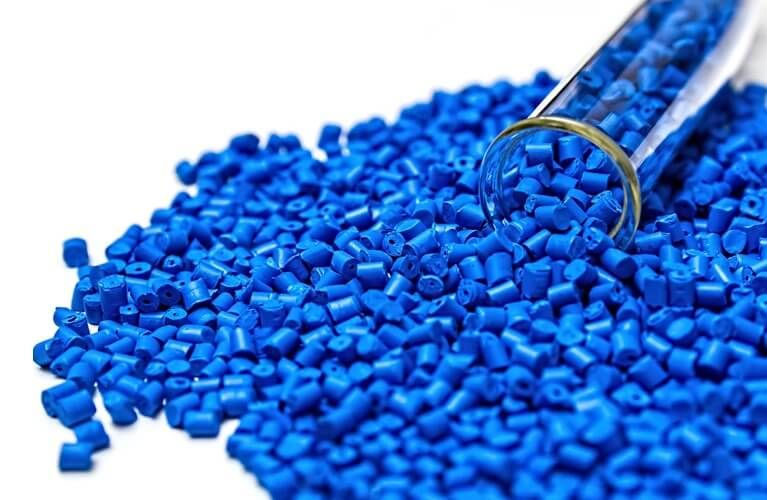The Plastic Paradigm

In a time with increasing concerns over climate change and the depletion of non-renewable resources, change is more important now more than ever before. Traditional petrochemical-based manufacturing with conventional plastics uses wasteful processes and is not environmentally-friendly. Plastic is one of the fastest growing components of the general waste stream and most expensive for municipalities to manage.
I wanted to share a recent paper published by Nicola De Blasio and Phoebe Fallon entitled “Avoiding a Plastic Pandemic: The Future of Sustainability in a Post COVID-19 World” by the Environment and Natural Resources Program Belfer Center for Science and International Affairs, Harvard Kennedy School. In this paper from January of this year, they analyzed these challenges on the plastic industry.
From the paper:
“When we think of plastic, what really springs to mind? Plastic has become so ubiquitous in our daily lives that we do not give it much thought. Yet it is everywhere: from clothing to chewing gum, from tea bags to whitening toothpaste, from toys to plastic bags or bottles. Up to five trillion single-use plastic bags are consumed every year and one million plastic water bottles are sold each minute globally. However, the lack of end-of-life considerations and the high costs of recycling have turned plastic into the victim of its own success by creating a global environmental crisis. Plastic lies at the center of society’s debate on sustainability, even more so during the ongoing COVID-19 pandemic, which has turned plastic into a much-needed ally.
According to a Pew Charitable Trust study, approximately 11 million metric tons of plastic enter the oceans each year, an amount that will triple by 2040. On the current trajectory, there will be more plastic in the oceans by weight than fish by 2050, and plastic can stay in the environment for hundreds of years—and even when degraded, it never truly leaves our ecosystems, but remains present as smaller pieces or particles. Once in the ocean, microplastics can commonly be mistaken for plankton and are ingested by marine life, leading to choking, starvation and propagation along the food chain. Furthermore, plastic has a significant carbon footprint not only because production is energy intensive, but also because it is made from of fossil fuels. In 2019, the production and incineration of plastic generated about 850 million metric tons of greenhouse gasses (GHG)—equal to the emissions of 189 five-hundred-megawatt coal power plants 7 or equivalent to 2.6 % of energy related global GHG emissions.
Two main reasons are at the basis of this global waste crisis:
First, a linear economy approach, also called a “take-make-use-waste” value chain, in which raw materials are transformed into products that are then used until being thrown away as waste. This model creates value by manufacturing and selling as many products as possible, at the cheapest cost possible, and assumes that the planet’s resources are infinite. As a result, it does not take into consideration any end-of-life issues.
Second, today’s plastic economy is highly fragmented. To begin with, not all plastics are equal, as they have different physical-chemical properties and lifespans. These differences are exacerbated by the lack of global standards and coordination across the value chain, which has allowed the proliferation of different materials, labeling, collection schemes, sorting and reprocessing systems, all of which hinder overall sustainability. Furthermore, innovation activities are also fragmented—the design of new materials is often disconnected from the development and deployment of after-use processes and infrastructure.
A new plastic paradigm is therefore needed. Achieving a long-term sustainable future for plastic will require integration along the entire value chain, from design to reuse, together with the transition to a truly circular economy. A circular economy is characterized by a value chain approach in which a product’s end-of-life is taken into consideration from the moment it is developed, and resources are reused instead of being continuously added. In terms of innovation, this will also require an increased focus on composition, both in terms of smarter materials design to improve recyclability and the development of bio-based alternatives.”
Well stated!

As an industry, we should find a role in mending these economic and natural systems as imperative. We need products that are produced from new technologies that can safely return to the Earth, rather than pollute it. We need to break the harmful cycle associated with traditional plastics and create solutions with the smallest environmental footprint, while still providing excellent capabilities.
Legislation, changing economic conditions and new science has created an opportunity in the plastics sector, allowing us to change our plastics paradigm. It is with great hope that we take advantage of what this opportunity presents.
New Composite Partners provides tailored services using the knowledge of a global team to advance the interests of environmental products and technologies world-wide.
www.linkedin.com/company/new-composite-partners


